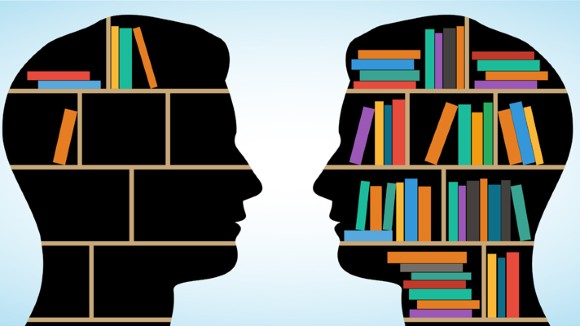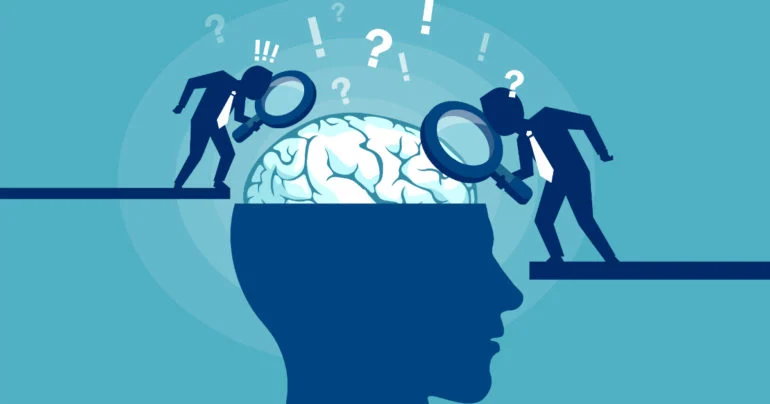Is psychology a social science? For one reason or another, people seem to ask this question. Whether a high schooler or someone seeking college admission, this question seems pertinent. To answer it briefly – most colleges classify psychology as a social science. This is primarily because psychology uses similar parameters to analyze a scenario or even an individual – as stated by social sciences. It mainly concentrates on social behaviours, human development, and the interaction of emotions that categorically draw on the social science methodology.
This article will give you a wider outlook on the context of social sciences and how psychology fits into it. You will also get an idea about its critical features and the difference between clinical and non-clinical psychology. Let’s try to explore the specifics –
Table of Contents
How is psychology a social science?

For starters – when talked in tune with academic discipline, social sciences study human society, its interaction with other humans, and the world that they inhabit. On the same note – psychology is an academic discipline that studies human behaviour and a range of its associated aspects, such as – emotions, mental health, personality development, and the brain’s functioning.
Therefore, to answer the query, is psychology a social science – one has to state that since it uses scientific methods and analysis (quite like social sciences) to study human behaviour and its range of emotions, you may categorize it within the broad umbrella of social sciences.
It is critical to understand that since psychology tries to comprehend the workings of the brain, it affects human behaviour and, in the long run, society. The functioning (good or bad) of humanity is related to individuals’ social etiquette. Therefore, the view of whether psychology can be classified under social sciences concludes in the positive.
So, what are those features that make psychology a part of the broader social sciences? The following section will answer your queries.
What features make psychology a social science?
Establishing the fact clearly that is psychology a social science and how it is now essential to shed light on certain facets of psychology that cement its position under this umbrella. Discussing the same –

- Social sciences do cover a coterie of subjects. However, at the end of the day, it deals with people. The key pointers of social sciences are how they behave, interact, and influence the world with their actions and reactions. This is also the area that psychology deals with – human interaction and their influence on society, based on their brain functioning.
- Another feature that solidifies psychology as a social science is – humans are influenced and influence the society around them. That very social set-up pre-determines how a person behaves in a social set-up. That ‘pre-determined’ social set-up has again been framed as a result of combined psychological approaches. Therefore, psychological aspects in a social set-up are more or less like a cycle – interacting and influencing each other.
- Psychology also helps individuals understand themselves and their actions better in a specified set-up. Hence, there are more than enough chances for a person to evolve and, in due course, make a better society. That is an essential segment in social sciences since this branch constantly looks at evolving and bettering its lookout.
- Lastly, a note vehemently tries to answer is psychology a social science in a positive light – the usage of analytical parameters while conducting psychological research. These parameters are quite similar to the ones that social scientists use when conducting any social survey, thereby the coincidence.
These are some of the key features that confirm psychology’s placement within the social sciences gamut. If you think that should end the confusion, you are in the wrong. There are other factors that one must clarify before categorizing psychology under the heading of social sciences.
Is psychology similar to natural science?

A question that people have to often face – is psychology a social science or a natural science. Now, the basis of this question arises from the fact that – since both use certain scientific methods, where is the difference? Here’s clarifying your doubt –
Natural science implies the group of physical sciences – physics, chemistry, and biology. These include tangible experiments and results based on the same. Also, they can predict certain happenings based on the data received from their investigations. It is precisely here that psychology differs from natural sciences and comes under the domain of social science.
Psychology, by its nature, requires statistical analysis or data collection and streamlining – to come to a conclusion. This data is then used for understanding certain circumstances and dealing with the same. However, unlike natural sciences, psychology does not have the capacity to predict certain happenings or even human behaviour. It understands, reflects on the same, and works to provide conclusive evidence. Therefore, it affects the broader social perspective rather than a limited feature.
How do researchers conduct psychological studies?

To establish the fact that is psychology a social science and how is it different from natural science, one needs to look into the research methodologies that psychological experts follow. For the ones unaware, natural sciences work on quantitative research methods, while social sciences like psychology work on qualitative research methods.
Yet, at times, certain research studies coincide primarily because – certain aspects of psychology are interdisciplinary. In those areas, you require both quantitative and qualitative methodologies, so supposedly, the controversy about psychology being confused with other sciences starts. However, let’s once and for all – clarify the specifics that psychology is a social science and being interdisciplinary, it may coincide with other sciences, but the base remains unchanged.
The final takeaway
Psychology is a crucial part of social science that concentrates on human behaviour and how a person conducts themselves in society. With respect to this basic outline, certain analyses and strategies are made that, in the long run, help in the better development of society. If you have been reading this article well, you have precisely understood how is psychology a social science and the facets that categorize the subject into this wider gamut of sciences. Therefore, in the future, you can save yourself from the misconception and help others deal with the same. There are a couple of further queries you must check out for a clearer conception of its positioning under the social sciences category.
FAQ
1. What is the difference between clinical and non-clinical psychology?
This is a query that many have come across while trying to define is psychology a social science and how to segregate it. Clinical psychology directly deals with the illness generated from a particular psychological condition. Certain aspects of it may coincide with natural sciences since they categorically affect the surroundings of individuals.
On the contrary, non-clinical psychology characteristically deals with research and data analysis and is precisely part of social science.
2. How does its study benefit individuals?
There are many ways in which the study of psychology benefits individuals. Those are – it helps understand people from multiple perspectives, boosts communication and relationships, betters career, and increases self-confidence.
3. Why is there a debate between social and natural sciences?
The debate, especially surrounding psychology, arises simply because of certain reasons – psychology uses diverse methodologies for research purposes. Some of them directly coincide with the systems used in natural sciences. Given that psychology is an interdisciplinary domain, the issue sometimes snowballs into a confusing affair.
Monalisa Mukherjee is a content writer, copywriter and editor with 4 years of experience. She has written for websites like Biography Talk, The Rich Net Worth, Contour Cafe, He And She Fitness and Fiction Pad. She is currently associated with a noted Digital Marketing Agency and specialises in writing press release, guest posts, articles on travel, entertainment, food recipes, celebs, lifestyle, tech, health, and fashion.





